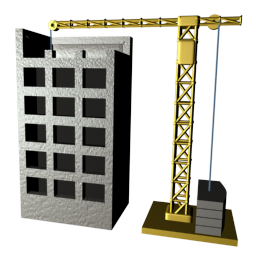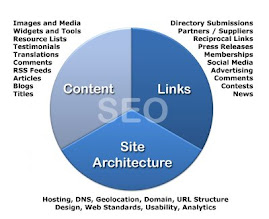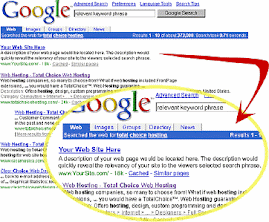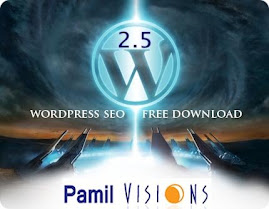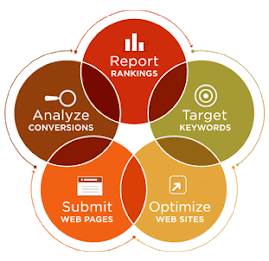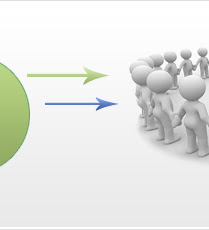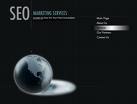Sadly, many people have succumb to the snake oil that some shady SEOs are pushing. They say they have the secret to getting you top ranked in Google, Yahoo! and any other search engine in 7 days or less. They claim to have the bulletproof plan to solve all your SEO worries. All you have to do is pay 79.95 + tax and the nominal 19.95 shipping and handling charges. If you buy that, then do I have a deal for you!
The facts of SEO are not strange or mystical. They are clearly defined, well referenced and readily reproduced. Yes, it is quite possible to rank in 7 days, but don’t believe the hype and definitely don’t pay for an overnight cure all to solve your SEO woes. Instead, learn what is myth and what is fact. Learn where to begin your SEO journey, and where to continue it. Pick up the tools of the trade and begin to build a solid SEO campaign.
Common Myths of SEO Debunked… Sort of
Myth: There is some mystical secret formula that SEOs use to calculate, analyze and optimize a website and/or web page.
Fact: Oh, there are formulas alright and some people even treat them as a secret, but they are far from mystical. Actually, most methodologies for analyzing SEO factors both on and off-page are very scientific. They are based on factors that can be readily quantified and often are defined on specific rule sets. As changes occur in search engine algorithms, so do these formulas. Complicated, perhaps, but there is nothing mystical here. With enough research and time, anyone can learn the very same formulas used by even the best SEOs.
Even so, you don’t have to invest years of research to learn the basic formulas that many SEOs use. There are many sites around the give the average webmaster an interface to these formulas in the form of web based tools, browser toolbars and desktop applications. Such tools are only a starting point and are useful for basic optimization; they do not replace the experience of a skilled SEO.
Myth: There is some complicated scientific method used to optimize a website and/or web page.
Fact: The scientific method, in itself is not complicated. As CJ Jenkins recently pointed out, the scientific method is very straight-forward and is most certainly applicable to SEO. However, how the scientific method is applied to your SEO campaign will differ on a per campaign basis. The main idea is to use a structured approach to determining the needs of the client, develop an approach to solve the need, test the proposed solutions, repeat as necessary and report the results.
Whenever possible and practical, the scientific method should be used when defining and working on a SEO campaign. This will allow for much more useful results.
Myth: There are prerequisites on authority you have to achieve before you can reach page one on any search engine.
Fact: Let’s look at this myth with an analogy. Have you ever played “king of the hill”? It isn’t always the biggest kid on the block to ends up the king and no king stays there forever. Usually, the most creative and resourceful kid is the one that ends up being king. Well, in some ways, it’s the same in SEO.
Big name brands obviously have an advantage over smaller brands in that they are in demand and everyone knows their name, therefore, there has to be some degree of pressure on search engines to rank them higher. However, that does not mean that those big brands will always rank number one. While search engines may possibly give big brands a boost (or not), most engines have a higher emphasis on relevancy over brand. Therefore, it’s not at all out of the question that a brand as young as 3 months old can rank number one for a specific term or phrase if it is the most relevant result around. It’s actually quite common in long tail queries, but can be seen in some generic queries as well, though that is more rare.
Tuesday, March 31, 2009
Monday, March 30, 2009
12 Types of Content Strategies SEOs Should Know and Use
Its been said time and again, to search engines, “content is king”, but when it really comes down to it, many companies say they don’t have the time, patience, or budget for content creation. It begs the question; why then should they be ranked high in the search results? Maybe, just maybe, they’re not thinking about it logically and aren’t considering all the options at their disposal.
Here are 12 different types of content (not necessarily mutually exclusive) that when implemented properly, can drive tremendous volumes of visitors, links, and even business:
1. widgets/badges - for those unfamiliar with widgets, a widget is typically an interactive tool, that can be embedded in a web page. Since they’re interactive, often they can help potential clients find solutions quicker than they otherwise might have, making them a very powerful online marketing tool. Sometimes widgets are also made available for download to other websites, making them a powerful link acquisition tool too. Below is an example of one such widget.
2. videos - a good video is difficult to beat. People like to hear and see things for themselves, as opposed to reading about them, or being told about them. Video makes this possible, and accordingly is very popular. At the same time, video can be instructional, entertaining, and/or informational. When well done, videos will drive tremendous volumes of traffic, links, and/or potential clients to a site … and offers additional opportunities to appear in the search results
3. images - if a picture can say a 1000 words, then its also possible for images to generate 1000 visitors or links. We’ve seen many client sites, who’s images drive 20%+ of their overall website traffic volumes. In many cases, images are the reason people visit websites … they need to see what they’re buying! All that to say, do not underestimate the power of good quality images!
4. research - people often buy from websites they’ve heard about before, because familiarity breeds loyalty and trust. One means of breeding familiarity and trust is to perform and publish unique research that others in your industry or potential clients will find useful. When well thought out, timely, and topical, such research can generate thousands of links, visitors, and potential clients. Good research also helps to establish you as an authority in your space.
5. awards - everyone likes to receive cudos, or acknowledgement of a job well done! Now image that you as a site owner offer the ability for others to take those cudos, and post them on their site for all to see. Its a powerful tool, often generating thousands of visitors and/or links.
6. contests - while not for every business, contests can generate alot of relevant links, and accordingly help a site rank much better. The key is to ensure that the contest somehow relates to your business.
7. news - sites that are routinely first to publish industry news, are often visited more frequently, generate more links, and are viewed more as industry authorities. Alternatively, those running news stories after the fact, typically don’t experience all these benefits, unless they add some value or unique intepretation angle. Of course, one way to ensure the news is new and fresh is to make the news (aka a publicity stunt) … so get creative!
8. blog posts - perhaps one of the most popular techniques to create content, and one of the most poorly done! Most don’t understand the subtle nuances of creating blog content. I’ve posted about it previously (12 Common Blogging Mistakes to Avoid) as have many others, but the majority still continue to write blog content as if it were for another form of offline media.
Blog content generally consists of one of the four types listed below:
a. editorial/opinion based
b. entertaining
c. resource/educational
d. news (see #7 above)
The type you choose should be based on your objectives.
9. do something “remarkable” - if a company truly does something remarkable and unique, and publishes it on their site, the content will take on a life of its own. What does this mean? Well, if you’re a sausage manufacturer, manufacture the largest sausage on the planet. If you own a burger joint, offer a $2700 burger on the menu. Even if no one ever orders it, its something to mention on your website, and something interesting that others will notice and talk about (which results in links, visitors, and often clients). Consider this term alone “most expensive martini” … there are 1200 mentions on it in Google, and presumably a good number of those mentions link to it!
10. create an ebook - much easier said than done, but creating a ebook can result in perceived authority, visitors, links, and …. business!
11. make and distribute applications - if you can find a way to make potential clients lives easier (online or offline), it can have a profound impact. Creating an online application such as a WordPress plugin, a calculator, or industry software, and hosting it for download via your site, can increase awareness of your site, your perceived authority in the industry, attract large volumes of visitors, links, and yes, even business.
12. user generated content - content added by others, is content that you didn’t have to add yourself. With most business owner’s arguing they don’t have the time or budget for content, user generated content (UGC) would appear to be a logical solution. Although, most business owners then become concerned with their inability to control the content. Precautions can be taken however in most situations, making UGC a solution worth investigating.
Here are 12 different types of content (not necessarily mutually exclusive) that when implemented properly, can drive tremendous volumes of visitors, links, and even business:
1. widgets/badges - for those unfamiliar with widgets, a widget is typically an interactive tool, that can be embedded in a web page. Since they’re interactive, often they can help potential clients find solutions quicker than they otherwise might have, making them a very powerful online marketing tool. Sometimes widgets are also made available for download to other websites, making them a powerful link acquisition tool too. Below is an example of one such widget.
2. videos - a good video is difficult to beat. People like to hear and see things for themselves, as opposed to reading about them, or being told about them. Video makes this possible, and accordingly is very popular. At the same time, video can be instructional, entertaining, and/or informational. When well done, videos will drive tremendous volumes of traffic, links, and/or potential clients to a site … and offers additional opportunities to appear in the search results
3. images - if a picture can say a 1000 words, then its also possible for images to generate 1000 visitors or links. We’ve seen many client sites, who’s images drive 20%+ of their overall website traffic volumes. In many cases, images are the reason people visit websites … they need to see what they’re buying! All that to say, do not underestimate the power of good quality images!
4. research - people often buy from websites they’ve heard about before, because familiarity breeds loyalty and trust. One means of breeding familiarity and trust is to perform and publish unique research that others in your industry or potential clients will find useful. When well thought out, timely, and topical, such research can generate thousands of links, visitors, and potential clients. Good research also helps to establish you as an authority in your space.
5. awards - everyone likes to receive cudos, or acknowledgement of a job well done! Now image that you as a site owner offer the ability for others to take those cudos, and post them on their site for all to see. Its a powerful tool, often generating thousands of visitors and/or links.
6. contests - while not for every business, contests can generate alot of relevant links, and accordingly help a site rank much better. The key is to ensure that the contest somehow relates to your business.
7. news - sites that are routinely first to publish industry news, are often visited more frequently, generate more links, and are viewed more as industry authorities. Alternatively, those running news stories after the fact, typically don’t experience all these benefits, unless they add some value or unique intepretation angle. Of course, one way to ensure the news is new and fresh is to make the news (aka a publicity stunt) … so get creative!
8. blog posts - perhaps one of the most popular techniques to create content, and one of the most poorly done! Most don’t understand the subtle nuances of creating blog content. I’ve posted about it previously (12 Common Blogging Mistakes to Avoid) as have many others, but the majority still continue to write blog content as if it were for another form of offline media.
Blog content generally consists of one of the four types listed below:
a. editorial/opinion based
b. entertaining
c. resource/educational
d. news (see #7 above)
The type you choose should be based on your objectives.
9. do something “remarkable” - if a company truly does something remarkable and unique, and publishes it on their site, the content will take on a life of its own. What does this mean? Well, if you’re a sausage manufacturer, manufacture the largest sausage on the planet. If you own a burger joint, offer a $2700 burger on the menu. Even if no one ever orders it, its something to mention on your website, and something interesting that others will notice and talk about (which results in links, visitors, and often clients). Consider this term alone “most expensive martini” … there are 1200 mentions on it in Google, and presumably a good number of those mentions link to it!
10. create an ebook - much easier said than done, but creating a ebook can result in perceived authority, visitors, links, and …. business!
11. make and distribute applications - if you can find a way to make potential clients lives easier (online or offline), it can have a profound impact. Creating an online application such as a WordPress plugin, a calculator, or industry software, and hosting it for download via your site, can increase awareness of your site, your perceived authority in the industry, attract large volumes of visitors, links, and yes, even business.
12. user generated content - content added by others, is content that you didn’t have to add yourself. With most business owner’s arguing they don’t have the time or budget for content, user generated content (UGC) would appear to be a logical solution. Although, most business owners then become concerned with their inability to control the content. Precautions can be taken however in most situations, making UGC a solution worth investigating.
Friday, March 27, 2009
50 SEO tips for online retailers
SEO for online retailers is the process of improving a website potential in order to gain more organic non-paid traffic from the major search engines. Normally, SEO uplift doesn't happen overnight and it can take a long while to rank well for non brand key terms.
The rule of thumb is this: the more competition a relative term has, the harder you'll find it to rank for the term. With that said, you've got to start somewhere and there at least 50 ways I can think of to improve your SEO.
Choose your hosting provider carefully
1. If you're targeting one specific region, say the UK, ensure that the physical IP address is country specific which will improve the likelihood of ranking in the UK
2. Always opt for a fixed IP address even if it costs slightly more
3. Run an IP address search to ensure the IP address hasn't been black listed before. Domain Tools are an excellent source for quick IP address lookup
4. Ensure the server returns accurate response:
* 200 OK The request has succeeded - As an example you should see this server response for your homepage (www.sitename.com)
* 301 Moved Permanently - As an example you should see this server response for your non www version of your homepage (sitename.com)
* 302 Found - Use this server response only if you are redirecting temporary
* 404 Not Found - Always display a correct 404 response so you can get an indication when a page is broken for better user experience
Increase crawl rates because you can never get enough of Google
5. To check when your site was last crawled and indexed, search for site:sitename.com and play with “date range” advanced search options
6. Update the site's content as often as possible. For online retailers, new promotions and offers offer a fantastic opportunity to update their content
7. Ensure pages are loading quickly by analyzing your code, content and images. Web Page Analyzer is an excellent source to analyze a page load time
8. Fix duplicate content issue such as having two versions of your homepage, for example www.sitename.com and www.sitename.com/index.php
9. Add an XML site map and submit it to the major search engines
Ensure image optimisation across the site to enjoy traffic from Google image search
9. Keep images on a folder level rather than a subdomain so sitename.com/images/ is better than images.sitename.com
10. Use a descriptive name for the image, such as the product name
11. Use alt text for all your images and use a descriptive name again for the image alt text name
12. Use caption by placing a small description directly under, on top or on the side of your image
13. When possible save the image as jpg format
14. Use a free tool such as xenu to find images with no alt text
Ensure metadata optimisation to get high level of qualified traffic
15. Ensure that every page has unique metadata in terms of page title and page description
16. Limited page title to 70 characters and page description to 150 characters
17. Don't bother too much about keywords, do something else
18. Optimise each page around one key term
19. Place the most important term first, followed by a soft (non spammy) call to action and brand
20. For product pages, opt for an auto generate metadata solution based on + at
21. Use AdWords ads to test the best text for better CTR by creating a few ad variation in AdWords which include your key term
Content is truly king
22. Every page should have unique content which reads well for users (and therefore for the search engine spiders as well)
23. Don't repeat the key term more than 3 times so to avoid keyword stuffing
24. Place the key term in the page H1 title, image alt text and once in bold
25. Use "recommended products" to link between similar products to increase their relevancy
Apply essential URL and coding tweaks
26. Use robot.txt to block parts of the site you don't wish the engines to index
27. Offer an HTML site map which is auto updated based on the XML site map
28. For sites running on PHP use an .htaccess file to avoid content duplication
29. Use breadcrumbs navigation across the site for better user experience and SEO
30. From time to time, view your site using a text browser such as SEO Browser to "see" how spiders are likely to find your on page content
31. If your site architecture has more than three levels, restructure it so to make the information more accessible to both users and spiders
32. Keep URLs short for better SEO and to create a better viral effect as short URLs are more memorable
33. Include your key term such as a product title in the URL
Apply essential maintenance from time to time
34. Fix all your 404 errors and consider redirecting to a more appropriate page
35. When products are removed from stock or discontinued ensure that a 301 is placed to the main category or to a similar product
36. When linking to another site, consider checking whether you're linking to a bad neighborhood using a free tool such as text link checker
37. If you have multiple domains unify around one domain using a 301 redirect taking into account links pointing to each domain, domain age and the domain name
The Google PageRank issue
38. Don't pay too much attention to Google PR as it won't effect your ranking
39. If you want to control page rank, use a nofollow HTML attribute on pages such as "terms and conditions", "privacy policy" etc
Content is king, so start blogging
40. Place your blog on a directory level so www.sitename.com/blog/ rather than a sub domain blog.sitename.com
41. Blogging at least once a week will help increase your crawl rate
42. Read The Definitive Guide To Higher Rankings For Your Blog
Get more links, otherwise no one will see you
43. If you're considering directories as part if your link acquisition, focus on quality reviewed directories such as Yahoo and Best of the Web
44. Don't pay for links, you'll get caught at some point
45. Help your customers help you by placing on each page an easy way to share content using a sharing tool such as AddToAny
46. Ask for links take 1 - place a nice soft request in your website sale confirmation email to link back to your site
47. Ask for links take 2 - ask your suppliers and contractors for a link
48. Give blogger prior notice of new products and ask for a review
49. Offer great products at competitive prices and the links will come organically
50. Kick off a social media strategy to encourage discussion (and links) on social networks and other user-powered sites
The rule of thumb is this: the more competition a relative term has, the harder you'll find it to rank for the term. With that said, you've got to start somewhere and there at least 50 ways I can think of to improve your SEO.
Choose your hosting provider carefully
1. If you're targeting one specific region, say the UK, ensure that the physical IP address is country specific which will improve the likelihood of ranking in the UK
2. Always opt for a fixed IP address even if it costs slightly more
3. Run an IP address search to ensure the IP address hasn't been black listed before. Domain Tools are an excellent source for quick IP address lookup
4. Ensure the server returns accurate response:
* 200 OK The request has succeeded - As an example you should see this server response for your homepage (www.sitename.com)
* 301 Moved Permanently - As an example you should see this server response for your non www version of your homepage (sitename.com)
* 302 Found - Use this server response only if you are redirecting temporary
* 404 Not Found - Always display a correct 404 response so you can get an indication when a page is broken for better user experience
Increase crawl rates because you can never get enough of Google
5. To check when your site was last crawled and indexed, search for site:sitename.com and play with “date range” advanced search options
6. Update the site's content as often as possible. For online retailers, new promotions and offers offer a fantastic opportunity to update their content
7. Ensure pages are loading quickly by analyzing your code, content and images. Web Page Analyzer is an excellent source to analyze a page load time
8. Fix duplicate content issue such as having two versions of your homepage, for example www.sitename.com and www.sitename.com/index.php
9. Add an XML site map and submit it to the major search engines
Ensure image optimisation across the site to enjoy traffic from Google image search
9. Keep images on a folder level rather than a subdomain so sitename.com/images/ is better than images.sitename.com
10. Use a descriptive name for the image, such as the product name
11. Use alt text for all your images and use a descriptive name again for the image alt text name
12. Use caption by placing a small description directly under, on top or on the side of your image
13. When possible save the image as jpg format
14. Use a free tool such as xenu to find images with no alt text
Ensure metadata optimisation to get high level of qualified traffic
15. Ensure that every page has unique metadata in terms of page title and page description
16. Limited page title to 70 characters and page description to 150 characters
17. Don't bother too much about keywords, do something else
18. Optimise each page around one key term
19. Place the most important term first, followed by a soft (non spammy) call to action and brand
20. For product pages, opt for an auto generate metadata solution based on
21. Use AdWords ads to test the best text for better CTR by creating a few ad variation in AdWords which include your key term
Content is truly king
22. Every page should have unique content which reads well for users (and therefore for the search engine spiders as well)
23. Don't repeat the key term more than 3 times so to avoid keyword stuffing
24. Place the key term in the page H1 title, image alt text and once in bold
25. Use "recommended products" to link between similar products to increase their relevancy
Apply essential URL and coding tweaks
26. Use robot.txt to block parts of the site you don't wish the engines to index
27. Offer an HTML site map which is auto updated based on the XML site map
28. For sites running on PHP use an .htaccess file to avoid content duplication
29. Use breadcrumbs navigation across the site for better user experience and SEO
30. From time to time, view your site using a text browser such as SEO Browser to "see" how spiders are likely to find your on page content
31. If your site architecture has more than three levels, restructure it so to make the information more accessible to both users and spiders
32. Keep URLs short for better SEO and to create a better viral effect as short URLs are more memorable
33. Include your key term such as a product title in the URL
Apply essential maintenance from time to time
34. Fix all your 404 errors and consider redirecting to a more appropriate page
35. When products are removed from stock or discontinued ensure that a 301 is placed to the main category or to a similar product
36. When linking to another site, consider checking whether you're linking to a bad neighborhood using a free tool such as text link checker
37. If you have multiple domains unify around one domain using a 301 redirect taking into account links pointing to each domain, domain age and the domain name
The Google PageRank issue
38. Don't pay too much attention to Google PR as it won't effect your ranking
39. If you want to control page rank, use a nofollow HTML attribute on pages such as "terms and conditions", "privacy policy" etc
Content is king, so start blogging
40. Place your blog on a directory level so www.sitename.com/blog/ rather than a sub domain blog.sitename.com
41. Blogging at least once a week will help increase your crawl rate
42. Read The Definitive Guide To Higher Rankings For Your Blog
Get more links, otherwise no one will see you
43. If you're considering directories as part if your link acquisition, focus on quality reviewed directories such as Yahoo and Best of the Web
44. Don't pay for links, you'll get caught at some point
45. Help your customers help you by placing on each page an easy way to share content using a sharing tool such as AddToAny
46. Ask for links take 1 - place a nice soft request in your website sale confirmation email to link back to your site
47. Ask for links take 2 - ask your suppliers and contractors for a link
48. Give blogger prior notice of new products and ask for a review
49. Offer great products at competitive prices and the links will come organically
50. Kick off a social media strategy to encourage discussion (and links) on social networks and other user-powered sites
Thursday, March 26, 2009
SEO is a journey
When the discussion turns to SEO, one of the most common misperceptions many clients have is that SEO is a destination; that you can do a few things and you'll reach the pot of gold at the end of the rainbow.
This is embodied in questions that might be familiar to you:
* "How long will it take to optimize my site?"
* "How much would you charge to get me to get a top 10 ranking on Google?"
* "Can you help me revise my copy with keywords for SEO?"
Inevitably, I have to break the bad news to the client: SEO isn't that simple.
Sure there are SEO-related tasks that, for smaller clients, are usually one-off projects, from creating a good information architecture to developing optimal link structures to making sure that page markup is search engine friendly.
But this is the easy stuff and it's just the beginning.
Unfortunately, I've come face to face with the reality that there are a lot of people out there who don't know this. And frankly, that's often because they people who they hire to help them with SEO aren't telling them.
I've worked on a number of consulting projects so far this year in which the client has retained the services of an 'SEO person'. Even though I don't provide SEO services to clients these days, I like talking SEO because I have been doing it for years with my own websites.
Here are just a few of the things that some of my recent clients have been led to believe:
* Copy should be written specifically for SEO.
* Including a list of keywords in page footer text is very important.
* Building a network of sites that all link to each other can help boost your SERPs.
* Adding a blog to your site will boost your ranking.
* Splogging is a great way to create up lots of pages for Google to index.
Most of this is hogwash. Copy should be written for humans. Adding a list of keywords in the footer of each page is not going to work SEO wonders. Setting up a network of sites solely for SEO purposes is a waste of time and money. While Google loves blogs, it's about the content, not the mere presence of a blog. And splogging is far more likely to get you removed from Google's index than it is to get you worthwhile SERPs.
Invariably, few of the clients I've dealt with lately who have retained the services of SEO consultants had been told that SEO was an ongoing process and that, outside of the structural components of SEO that a good content management system and webmaster can easily take care of, there really is no 'destination'.
Instead, it's the journey - producing valuable, authoritative information and getting other sites with authority to link to it - that makes all the difference when it comes to SEO. Unfortunately, if what I've seen lately is any indication, there are still a lot of hit-and-run, self-proclaimed SEO consultants out there selling a one-way trip to a place called SEO disappointment.
This is embodied in questions that might be familiar to you:
* "How long will it take to optimize my site?"
* "How much would you charge to get me to get a top 10 ranking on Google?"
* "Can you help me revise my copy with keywords for SEO?"
Inevitably, I have to break the bad news to the client: SEO isn't that simple.
Sure there are SEO-related tasks that, for smaller clients, are usually one-off projects, from creating a good information architecture to developing optimal link structures to making sure that page markup is search engine friendly.
But this is the easy stuff and it's just the beginning.
Unfortunately, I've come face to face with the reality that there are a lot of people out there who don't know this. And frankly, that's often because they people who they hire to help them with SEO aren't telling them.
I've worked on a number of consulting projects so far this year in which the client has retained the services of an 'SEO person'. Even though I don't provide SEO services to clients these days, I like talking SEO because I have been doing it for years with my own websites.
Here are just a few of the things that some of my recent clients have been led to believe:
* Copy should be written specifically for SEO.
* Including a list of keywords in page footer text is very important.
* Building a network of sites that all link to each other can help boost your SERPs.
* Adding a blog to your site will boost your ranking.
* Splogging is a great way to create up lots of pages for Google to index.
Most of this is hogwash. Copy should be written for humans. Adding a list of keywords in the footer of each page is not going to work SEO wonders. Setting up a network of sites solely for SEO purposes is a waste of time and money. While Google loves blogs, it's about the content, not the mere presence of a blog. And splogging is far more likely to get you removed from Google's index than it is to get you worthwhile SERPs.
Invariably, few of the clients I've dealt with lately who have retained the services of SEO consultants had been told that SEO was an ongoing process and that, outside of the structural components of SEO that a good content management system and webmaster can easily take care of, there really is no 'destination'.
Instead, it's the journey - producing valuable, authoritative information and getting other sites with authority to link to it - that makes all the difference when it comes to SEO. Unfortunately, if what I've seen lately is any indication, there are still a lot of hit-and-run, self-proclaimed SEO consultants out there selling a one-way trip to a place called SEO disappointment.
Wednesday, March 25, 2009
SEO Presentations
Finally, I want to talk about these points in relation specifically to our industry, whether you're doing the keynote at SMX or persuading your CEO that SEO isn't snake oil. Let's run a link building presentation through the GOER gauntlet.
* Goal: Find out what your audience wants from this link building presentation. If it's SMX Advanced, you don't need to explain why links are important; if it's a potential client, there's every chance they won't even know what a link is.
* Outline: You'll know more about link building than you could possibly imagine. Get it all out of your brain and onto some paper and now, based on what you learnt in 'Goal', go through and pick out the really useful stuff. Build a presentation around those points; they're the important bit, after all!
* Elaborate: Got a personal story about link building? Or an original idea about it? Make sure you make space for this in your talk because it's probably what your audience will remember you for.
* Refine: Be realistic. There's no way you can talk about all those link building techniques in a 20 minute slot. Focus on precisely what you want to cover and do it well.
You'll often have to cover a lot of technical information in these presentations. For those of you that fall into the 'scientific/factual' group above, taking in this information is a walk in the park. For the rest of us, it can be a bit of mission. Take time to put your tech stuff in a format that works for all - use big, clear diagrams and, if possible, illustrate each key point you make. SEOmoz is actually a great source of examples for this. How often does Rand use some kind of diagram or chart in his Whiteboard Fridays? And who will ever forget Googlebot?
It's also important to use specific examples in these kind of tech/jargon-heavy presentations. For example, if you can show your audience a real life example of link building in action, they're much more likely to believe you and recall what they've learnt once the session is over. In the same way, you should offer further resources for those skeptical audience members in group 4; give them something to go away and think about.
Lastly, this isn't about presentation skills... but while I'm here, don't forget to make the most out your presentation: do a follow up blog post about it and link to your slides; make sure you blog about anything new that was thrown up in the presentation and, if possible, contact anyone that spoke to you about your session.
* Goal: Find out what your audience wants from this link building presentation. If it's SMX Advanced, you don't need to explain why links are important; if it's a potential client, there's every chance they won't even know what a link is.
* Outline: You'll know more about link building than you could possibly imagine. Get it all out of your brain and onto some paper and now, based on what you learnt in 'Goal', go through and pick out the really useful stuff. Build a presentation around those points; they're the important bit, after all!
* Elaborate: Got a personal story about link building? Or an original idea about it? Make sure you make space for this in your talk because it's probably what your audience will remember you for.
* Refine: Be realistic. There's no way you can talk about all those link building techniques in a 20 minute slot. Focus on precisely what you want to cover and do it well.
You'll often have to cover a lot of technical information in these presentations. For those of you that fall into the 'scientific/factual' group above, taking in this information is a walk in the park. For the rest of us, it can be a bit of mission. Take time to put your tech stuff in a format that works for all - use big, clear diagrams and, if possible, illustrate each key point you make. SEOmoz is actually a great source of examples for this. How often does Rand use some kind of diagram or chart in his Whiteboard Fridays? And who will ever forget Googlebot?
It's also important to use specific examples in these kind of tech/jargon-heavy presentations. For example, if you can show your audience a real life example of link building in action, they're much more likely to believe you and recall what they've learnt once the session is over. In the same way, you should offer further resources for those skeptical audience members in group 4; give them something to go away and think about.
Lastly, this isn't about presentation skills... but while I'm here, don't forget to make the most out your presentation: do a follow up blog post about it and link to your slides; make sure you blog about anything new that was thrown up in the presentation and, if possible, contact anyone that spoke to you about your session.
New Tool To Help Fight Web Site Hackers
Today, I released a new open source, free tool that will hopefully help everyone in the fight against having their sites hacked. Here’s the info on the MonitorHackdFiles tool.
We all hear about how often people’s sites get hacked. This tool won’t stop that from happening, but here’s what it *will* do.
Let’s say a hacker places some malicious code in either some existing files on your site, or in new files on your site. Regardless of which method he used, he got in and accomplished his goal. Now, unbeknownst to you, your site is either:
1) serving hidden links to unsavory places
2) or redirecting just search users to unsavory sites that is then infecting those users’ computers with malware
3) or some other equally nefarious thing.
Either way, you’re site is toast, even if it looks perfectly normal to the naked eye. You may have no idea anything has happened until one day (maybe weeks later) you realize that you’ve been kicked out of Google’s SERPs (search listings).
Now you frantically start trying to find out why, and maybe, if you’re lucky, you realize you’ve been hacked. Then you have to begin the process of finding the files with the malicious code. Good luck with that!
That’s the basic problem. My new tool will help with that problem to some extent.
What it won’t do…it won’t prevent the attack. There are other things you should be doing/using to help win that battle. But if you lose that battle, and the attack happens, my tool kicks into gear.
My tool, called MonitorHackdFiles, is like a sentry for your site. It watches your site, and when it detects a file has changed (or been added), it notifies you via email and tells you which file(s) was changed. Now you know very quickly that you’ve been attacked, and you can react just as quickly. Now you can take whatever measures are needed to lock the site down, and with luck, you’ll avoid ever having that malicious code show its ugly face to Google, other search engines, or users.
It’s entire goal is to watch and notify. What you do with the information is entirely up to you. But what you don’t know, CAN hurt you.
We all hear about how often people’s sites get hacked. This tool won’t stop that from happening, but here’s what it *will* do.
Let’s say a hacker places some malicious code in either some existing files on your site, or in new files on your site. Regardless of which method he used, he got in and accomplished his goal. Now, unbeknownst to you, your site is either:
1) serving hidden links to unsavory places
2) or redirecting just search users to unsavory sites that is then infecting those users’ computers with malware
3) or some other equally nefarious thing.
Either way, you’re site is toast, even if it looks perfectly normal to the naked eye. You may have no idea anything has happened until one day (maybe weeks later) you realize that you’ve been kicked out of Google’s SERPs (search listings).
Now you frantically start trying to find out why, and maybe, if you’re lucky, you realize you’ve been hacked. Then you have to begin the process of finding the files with the malicious code. Good luck with that!
That’s the basic problem. My new tool will help with that problem to some extent.
What it won’t do…it won’t prevent the attack. There are other things you should be doing/using to help win that battle. But if you lose that battle, and the attack happens, my tool kicks into gear.
My tool, called MonitorHackdFiles, is like a sentry for your site. It watches your site, and when it detects a file has changed (or been added), it notifies you via email and tells you which file(s) was changed. Now you know very quickly that you’ve been attacked, and you can react just as quickly. Now you can take whatever measures are needed to lock the site down, and with luck, you’ll avoid ever having that malicious code show its ugly face to Google, other search engines, or users.
It’s entire goal is to watch and notify. What you do with the information is entirely up to you. But what you don’t know, CAN hurt you.
Tuesday, March 24, 2009
5 Link Building Tips for New Websites
Here is a list of 5 link building tactics for new websites to get them off on the right foot:
1. Links from Local Organizations - If your company is registered with the Better Business Bureau or the Chamber of Commerce, the links from these sites can be very relevant for geographically specific terms and topics. Also, locate other local businesses and organizations that maintain lists of businesses to request a link from.
2. Optimized Press Releases - Your business just launched or you have compelling news to announce - why not tell the world about it? There are many great press release distribution services available that will not only increase your brand visibility, but also earn you inbound links. Press releases that get picked up will often mention and link to the company being mentioned. Press releases that are copied whole, as content to blogs and information web sites will frequently retain any embedded links within the press release. However, the links in press releases hosted with wire services are commonly short term or devalued. See this past post for tips on press release optimization and distribution.
3. Reputable Directory Submissions - While some online directories have gotten a bad rap or have become irrelevant, certain directories can still pack a punch when done right. A few of these directories include Yahoo! Directory and Best of the Web. Also, if your business services a specific geographic area, find some good local directories to submit to, such as Google Local or use a service like GetListed. Optimizing and including your site in local data sources, search engines and directories can help boost your local search visibility.
4. Charity and Non-Profit Links - Does your company’s business model include philanthropy? When you make charitable contributions to organizations and non-profits, find out if it has a “Donors” list on its website and suggest a link.
5. Blog Based Link Building - If you’re thinking of starting a blog for your company, be sure to network online with complimentary blogs. Share industry news, original ideas and useful tips and you’ll attract links, often times, without asking. Link to other blogs in your industry, and reference fellow industry bloggers. They’ll notice and may link back. Links that come as a result of sharing useful blog content with others can attract traffic in the short term and boost search engine rankings overall. Just look at our own TopRank Online Marketing Blog with over 700,000 inbound links as an example.
1. Links from Local Organizations - If your company is registered with the Better Business Bureau or the Chamber of Commerce, the links from these sites can be very relevant for geographically specific terms and topics. Also, locate other local businesses and organizations that maintain lists of businesses to request a link from.
2. Optimized Press Releases - Your business just launched or you have compelling news to announce - why not tell the world about it? There are many great press release distribution services available that will not only increase your brand visibility, but also earn you inbound links. Press releases that get picked up will often mention and link to the company being mentioned. Press releases that are copied whole, as content to blogs and information web sites will frequently retain any embedded links within the press release. However, the links in press releases hosted with wire services are commonly short term or devalued. See this past post for tips on press release optimization and distribution.
3. Reputable Directory Submissions - While some online directories have gotten a bad rap or have become irrelevant, certain directories can still pack a punch when done right. A few of these directories include Yahoo! Directory and Best of the Web. Also, if your business services a specific geographic area, find some good local directories to submit to, such as Google Local or use a service like GetListed. Optimizing and including your site in local data sources, search engines and directories can help boost your local search visibility.
4. Charity and Non-Profit Links - Does your company’s business model include philanthropy? When you make charitable contributions to organizations and non-profits, find out if it has a “Donors” list on its website and suggest a link.
5. Blog Based Link Building - If you’re thinking of starting a blog for your company, be sure to network online with complimentary blogs. Share industry news, original ideas and useful tips and you’ll attract links, often times, without asking. Link to other blogs in your industry, and reference fellow industry bloggers. They’ll notice and may link back. Links that come as a result of sharing useful blog content with others can attract traffic in the short term and boost search engine rankings overall. Just look at our own TopRank Online Marketing Blog with over 700,000 inbound links as an example.
Sunday, March 22, 2009
Escaping from “Permanent” link building Traps
We provide permanent one way links…..,
We often encounter statements like this, while cruising around the Internet to hire link building service providers. And more so obvious, it sounds convincing. After all, no one intend to acquire links that would disappear with time or get camouflaged by other links on that page. Everyone is seeking for link developers who offer permanent links. And most of them come up with the following advertising statement:
“Your links will be Permanent for 6 months”
The person who understands the word “permanent”, could easily sense ambiguity in the above sentence. On one hand it says ‘permanent links’, where as on the other it says ‘for 6 months’! To my knowledge, it could either be permanent, or could be visible for 6 months. Both could not be possibly coupled together, or is it? Practically, oxymoron.
Experienced service providers promise links, for a certain time period to their clients and it depends on their mutual agreement. Because they know “Fast links” and this applies for links too. But, there are many offering permanent link guarantee. Let us see what they are talking about.
“Get permanent links from blogs and Articles”
Links that people think could be permanent are the links from blog comments, text links in articles, etc. These links could be easily developed by writing or posting articles and comments.
Moreover, from SEO perspective not all links from article and blogs could help you in ranking rather they pass value gradually. Such as:
#1 Most of the blog sites and article directories are no-follow and have no effect on rankings.
#2 Home pages get more weight over inner pages that are the reason for links on inner page of directory, to contribute less in rankings.
However, publishing article over home page depends on moderator of that site (Third Party). To get your article published on the site’s home page, need quality content. Also, to maintain your link on that page require consistent effort (as the link associated with your post would be pushed down with the passage of time by other posts).This would hold you to receive benefit, from these links after completion of your link building campaign. Hence, Article and blog submission links could work for your website for a specific time.
Should your link building motive is to increase link count, go ahead. However, if you are passionate about generating revenue from this, it would need your constant endeavor.
At times of hiring building providers, make sure of their credibility. Permanent link building guarantee statement should not be sufficient, to be convinced for taking their service. Be clear about your goal of link building that is generating revenue from quality links and not just developing links.
We often encounter statements like this, while cruising around the Internet to hire link building service providers. And more so obvious, it sounds convincing. After all, no one intend to acquire links that would disappear with time or get camouflaged by other links on that page. Everyone is seeking for link developers who offer permanent links. And most of them come up with the following advertising statement:
“Your links will be Permanent for 6 months”
The person who understands the word “permanent”, could easily sense ambiguity in the above sentence. On one hand it says ‘permanent links’, where as on the other it says ‘for 6 months’! To my knowledge, it could either be permanent, or could be visible for 6 months. Both could not be possibly coupled together, or is it? Practically, oxymoron.
Experienced service providers promise links, for a certain time period to their clients and it depends on their mutual agreement. Because they know “Fast links” and this applies for links too. But, there are many offering permanent link guarantee. Let us see what they are talking about.
“Get permanent links from blogs and Articles”
Links that people think could be permanent are the links from blog comments, text links in articles, etc. These links could be easily developed by writing or posting articles and comments.
Moreover, from SEO perspective not all links from article and blogs could help you in ranking rather they pass value gradually. Such as:
#1 Most of the blog sites and article directories are no-follow and have no effect on rankings.
#2 Home pages get more weight over inner pages that are the reason for links on inner page of directory, to contribute less in rankings.
However, publishing article over home page depends on moderator of that site (Third Party). To get your article published on the site’s home page, need quality content. Also, to maintain your link on that page require consistent effort (as the link associated with your post would be pushed down with the passage of time by other posts).This would hold you to receive benefit, from these links after completion of your link building campaign. Hence, Article and blog submission links could work for your website for a specific time.
Should your link building motive is to increase link count, go ahead. However, if you are passionate about generating revenue from this, it would need your constant endeavor.
At times of hiring building providers, make sure of their credibility. Permanent link building guarantee statement should not be sufficient, to be convinced for taking their service. Be clear about your goal of link building that is generating revenue from quality links and not just developing links.
Friday, March 20, 2009
SEO Maintenance
Search engine position maintenance is one of the most important jobs. Search engine placement is very important as the search engines change their algorithms often, pages get dropped from the search engines and during this process other sites try to place above you. We in india recommend an ongoing maintenance program by which we run periodic reports on your website placements. Doxo India Enterprises an SEO Company in New Delhi understands the important achieving top position on all the major search engines and only powerful or successful method to do so is Search Engine optimization. Doxo India specializes in Website Promotion in to major search engines. Search Engine Optimization India (Web Promotion) places an vital role in Internet marketing, this also help your web site get the exposure which it deserves and increase your website traffic instantly.
Tuesday, March 17, 2009
SEO Fleet Service
Full Transparency: As a leader in SEO services India, we are especially well known for our transparent and cost effective methods. We work only with “white hat” techniques to ensure that your website pages rank high while remaining true to the standards of Google, Yahoo, and MSN. We understand the importance of compliance for long-term success. Unlike other SEO services in India, we stick to the strategies that will remain effective for years to come. Short-cuts may help you rank high today, but we know the future of your business is tomorrow!
Industry Excellence: SEO services are an investment in your online marketing, and these days the online world can make or break you. We work hard to help our clients get top results. Where some SEO services companies in India or elsewhere promise the world and deliver next to nothing, we customize our strategy to suit your niche. On the web, every market plays by its own rules and require a unique optimization formula. Our wide range of experience and commitment to existing clientele is the leading factor in our company’s success. We know that proven excellence is the key to our long-term success – that’s why we work so hard to achieve results for you!
High Conversions: At the end of the day, SEO services are nothing without results. In the Search Engine Optimization world, results means conversions for your company. Whether you are selling products or services, we will work closely with you and your team to uncover the keyword phrases that will transform your business results. Our analytic keyword research study will determine the best SEO keyword phrases for the highest ROI.
Why Choose SEO Fleet? Our cost effective, results-oriented approach is the key to our success! Our commitment to you stems from a deeply seated desire to help your business grow. Our top goal with every client is to make you our next success story. Start your SEO services with SEO Fleet today and put your business on the fast track to higher profits, more sales, and long-term success!
Industry Excellence: SEO services are an investment in your online marketing, and these days the online world can make or break you. We work hard to help our clients get top results. Where some SEO services companies in India or elsewhere promise the world and deliver next to nothing, we customize our strategy to suit your niche. On the web, every market plays by its own rules and require a unique optimization formula. Our wide range of experience and commitment to existing clientele is the leading factor in our company’s success. We know that proven excellence is the key to our long-term success – that’s why we work so hard to achieve results for you!
High Conversions: At the end of the day, SEO services are nothing without results. In the Search Engine Optimization world, results means conversions for your company. Whether you are selling products or services, we will work closely with you and your team to uncover the keyword phrases that will transform your business results. Our analytic keyword research study will determine the best SEO keyword phrases for the highest ROI.
Why Choose SEO Fleet? Our cost effective, results-oriented approach is the key to our success! Our commitment to you stems from a deeply seated desire to help your business grow. Our top goal with every client is to make you our next success story. Start your SEO services with SEO Fleet today and put your business on the fast track to higher profits, more sales, and long-term success!
Monday, March 9, 2009
What Makes SEO & SEM So Damn Hard
Posted by fast seo
The business of optimizing websites for search engines is an immensely difficult, convoluted task. It requires a massive amount of knowledge, an incredible dedication to keeping up with one of the fastest moving industries on the planet and a ruthless addiction to testing and analytics. Here's my list of some of the reasons SEO/M is so challenging (not that I don't love it, of course):
* Search Engine Guidelines & Offerings
The search engines constantly refine their parameters for inclusion, acceptable practices and even display properties. In the past 2 years, we've seen major events like nofollow, the introduction of Webmaster Central, new guidelines on paid links, policies related to supplemental results at Google, the launch of Yahoo! Site Explorer, the Sitemaps program and dozens more.
* Crawling & Accessibility
Dynamic parameters, frames, non-HTML content (PDFs are indexable, Word documents are, too, but Flash is still on the fence and a lot of Java and AJAX doesn't function at all), factors determining crawl depth (inlinks, subfolders, fresh content, duplicate meta data) - all of these change regularly and require constant attention.
The business of optimizing websites for search engines is an immensely difficult, convoluted task. It requires a massive amount of knowledge, an incredible dedication to keeping up with one of the fastest moving industries on the planet and a ruthless addiction to testing and analytics. Here's my list of some of the reasons SEO/M is so challenging (not that I don't love it, of course):
* Search Engine Guidelines & Offerings
The search engines constantly refine their parameters for inclusion, acceptable practices and even display properties. In the past 2 years, we've seen major events like nofollow, the introduction of Webmaster Central, new guidelines on paid links, policies related to supplemental results at Google, the launch of Yahoo! Site Explorer, the Sitemaps program and dozens more.
* Crawling & Accessibility
Dynamic parameters, frames, non-HTML content (PDFs are indexable, Word documents are, too, but Flash is still on the fence and a lot of Java and AJAX doesn't function at all), factors determining crawl depth (inlinks, subfolders, fresh content, duplicate meta data) - all of these change regularly and require constant attention.
Tuesday, March 3, 2009
Brilliant Talents ( SEO )
Search Engine Optimization does hold brilliant talents, but as in any other walk of life, we need to place our own business in safe hands rather than falling for some of the cheap gimmicks played by uncouth players in this seamless arena. Search Engine optimization (SEO) does have a direct influence on your bottom line and therefore, low quotes should not be the isolated factor in decision making. Consider the multitude of benefits that a professional optimized website can bring you and you are sure to pick on the right Search Engine Optimization India
Subscribe to:
Posts (Atom)









